Evidence-based Practice fosters a culture of lifelong learning, which is essential for advancing healthcare quality. Graduates of the University of Jamestown’s Direct-Entry Master of Science in Nursing (MSN) program learn about research and evidence-based practice, grow as competent and compassionate nurse practitioners, and equip themselves to deliver evidence-based care to meet evolving patient and community health needs.
EBP integrates clinical experiences, the most relevant research findings and patient preferences to inform and create patient-centered care practices. It bridges the gap between research and practice, promoting effective interventions and reducing variability in patient care. By grounding decisions in evidence, healthcare professionals enhance patient safety, optimize resources and contribute to continuous improvement in clinical practices.
EBP: The Cornerstone of Effective Clinical Decision-Making and Quality Patient Care
EBP integrates clinical expertise with the best available research and patient values, ensuring high-quality care and improved outcomes. Levels of evidence within EBP research determine the quality and strength of the evidence produced. Knowledge of these levels helps clinicians decide what to integrate into their practice.
For MSN-prepared nurses, mastering EBP is not only an academic but also a professional requirement. However, implementing EBP has its challenges. Lack of resources and support from nurse leaders, staff shortages, increased workloads and EBP knowledge deficits create barriers to creating and completing projects and applying changes.
By effectively implementing EBP into their practice, nurses enhance their ability to deliver high-quality care tailored to individual patient needs. This commitment to EBP fosters a culture of continuous improvement within healthcare settings, promoting better health outcomes and optimizing resource utilization. EBP empowers nurses to be proactive leaders in interdisciplinary teams, driving innovations that elevate standards of care.
EBP Enhances Diagnostic Accuracy, Treatment Efficacy and Patient Outcomes
Incorporating EBP enhances diagnostic accuracy, treatment efficacy, quality care and patient outcomes. The Centers for Disease Control and Prevention (CDC) utilizes the EBP process to develop appropriate, relevant recommendations that reflect the most current evidence. CDC evidence-based guidelines are the standards healthcare agencies and organizations follow to improve quality care and outcomes.
Mastering EBP is crucial as it integrates the best available research with clinical expertise and patient values. By leveraging EBP, nurses analyze current data to make informed decisions that align with the latest scientific findings. This approach minimizes diagnostic errors by relying on validated tools and protocols rather than outdated methods and personal experience.
EBP ensures that treatments are practical and efficient. Nurse practitioners who utilize evidence-based guidelines can identify the most appropriate interventions for specific conditions, improving outcomes and increasing satisfaction rates. This leads patients to have greater trust in their healthcare providers.
EBP Improves Healthcare Quality, Safety and Cost Effectiveness
Evidence-based practice enhances the quality, safety and cost-effectiveness of patient care. By relying on the best available research, clinical expertise and patient preferences, EBP enables healthcare professionals to make informed decisions that optimize outcomes. Nurse practitioners must be able to critically appraise and integrate research findings into clinical practice. This approach minimizes variability in care delivery and ensures that interventions are practical and efficient.
EBP fosters a culture of continuous improvement within healthcare organizations and across various settings. By consistently applying the latest evidence, nurses and nurse practitioners can identify gaps in current practices and proactively implement strategies to address them. Adhering to proven protocols reduces errors and enhances patient safety. EBP reduces costs by avoiding unnecessary tests and treatments, leading to more sustainable healthcare delivery systems.
EBP’s Impact on Advancing Nursing Practice Standards and Professional Credibility
Evidence-based practice elevates nursing practice standards and bolsters professional credibility by integrating the most current, quality research into clinical decision-making. EBP allows professionals to incorporate new techniques and technologies into nursing practice.
By applying evidence-based guidelines into their practice, nurses demonstrate their commitment to excellence and professionalism, gaining the trust of patients, peers and the community. This professional advocacy reduces healthcare costs while increasing clinical decision-making and confidence and improving outcomes.
The EBP process has significantly impacted the nursing discipline, reinforcing the role of nurses as critical contributors to interdisciplinary healthcare teams dedicated to delivering superior patient care. In the Direct-Entry MSN program from the University of Jamestown, students gain a strong foundation in EBP and how it informs professional nursing practice.
Learn more about the University of Jamestown’s Direct-Entry Master of Science in Nursing program.
